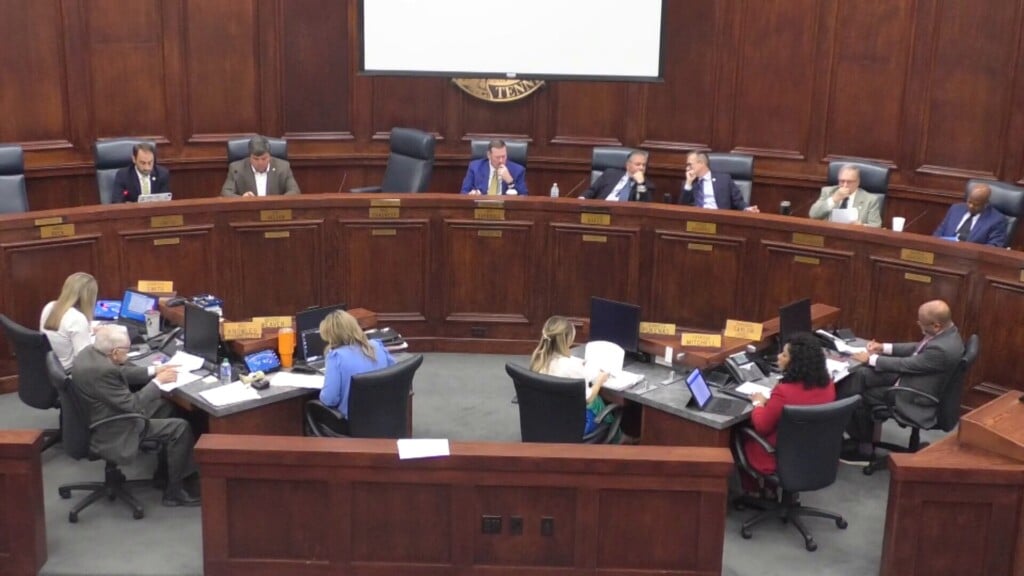Chattanooga Native Serves aboard ‘Floating Airport at Sea,’ Half A World Away
By Lt. Jake Joy, Navy Office of Community Outreach
Photo by Senior Chief Mass Communication Specialist Gary Ward
YOKOSUKA, Japan – Petty Officer 2nd Class Jorge Morales, a native of Chattanooga, Tennessee, knew he wanted to get out in the world, see new places and do something that felt significant. So he joined the U.S. Navy.
Now, a dozen years later and half a world away, Morales serves aboard the aircraft carrier USS Ronald Reagan, patrolling one of the world’s busiest maritime regions as part of the leading-edge of U.S. 7th Fleet.
“It’s always pretty busy,” said Morales. “People are always working on something.”
Morales, a 2004 graduate of Tyner Academy, is a damage controlman aboard the Yokosuka, Japan-based ship, the only forward-deployed aircraft carrier in the Navy.
“For the most part, I’m conducting hazard abatement,” Morales said. “We’re basically doing zone inspections, looking for safety violations. Like during an underway replenishment, we make sure people are where they’re supposed to be, are wearing the right protection and the number of personnel doing a task is correct – general safety.”
Morales credits his success in the Navy to lessons learned in Chattanooga.
“I’m a pretty decent damage controlman,” he said. “I know how to get people through a situation. Whenever we respond to emergencies, there’s a particular way it’s supposed to go down. I’ve been good at it so far.”
U.S. 7th Fleet spans more than 124 million square kilometers, stretching from the International Date Line to the India/Pakistan border; and from the Kuril Islands in the North to the Antarctic in the South. U.S. 7th Fleet’s area of operations encompasses 36 maritime countries and 50 percent of the world’s population with between 50-70 U.S. ships and submarines, 140 aircraft, and approximately 20,000 sailors.
“For new people, I think it’s hard,” Morales said. “They’re away from their family for the first time, they’re in a different culture. You also don’t really get a break when you’re a part of this ship. You’re either underway or you’re getting ready for it.”
With more than 50 percent of the world’s shipping tonnage and a third of the world’s crude oil passing through the region, the United States has historic and enduring interests in this part of the world. The Navy’s presence in Yokosuka is part of that long-standing commitment.
“The Navy is forward-deployed to provide security and strengthen relationships in a free and open Indo-Pacific. It’s not just the ships and aircraft that have shown up to prevent conflict and promote peace,” said Vice Adm. Phil Sawyer, commander, U.S. 7th Fleet. “It is, and will continue to be our people who define the role our Navy plays around the world. People who’ve made a choice, and have the will and strength of character to make a difference.”
Named in honor of former President Ronald Reagan, the carrier is longer than three football fields, measuring nearly 1,100 feet. The ship, a true floating city, weighs more than 100,000 tons and has a flight deck that is 252 feet wide. Two nuclear reactors can push the ship through the water at more than 35 mph.
Sailors’ jobs are highly varied aboard the carrier. Approximately 3,200 men and women make up the ship’s crew, which keeps all parts of the aircraft carrier running smoothly — this includes everything from handling weapons to operating nuclear reactors. Another 2,500 men and women form the air wing responsible for flying and maintaining more than 70 aircraft aboard the ship.
Ronald Reagan, like each of the Navy’s aircraft carriers, is designed for a 50-year service life. When the air wing is embarked, the ship carries more than 70 attack jets, helicopters and other aircraft, all of which take off from and land aboard the carrier at sea.
Serving in the Navy means Morales is part of a world that is taking on new importance in America’s focus on rebuilding military readiness, strengthening alliances and reforming business practices in support of the National Defense Strategy.
A key element of the Navy the nation needs is tied to the fact that America is a maritime nation, and that the nation’s prosperity is tied to the ability to operate freely on the world’s oceans. More than 70 percent of the Earth’s surface is covered by water; 80 percent of the world’s population lives close to a coast; and 90 percent of all global trade by volume travels by sea.
“Our priorities center on people, capabilities and processes, and will be achieved by our focus on speed, value, results and partnerships,” said Secretary of the Navy Richard V. Spencer. “Readiness, lethality and modernization are the requirements driving these priorities.”
Though there are many ways for sailors to earn distinction in their command, community, and career, Morales is most proud of his effort in mentoring one junior fireman in particular.
“I taught him lots of good lessons and he was able to make rank,” he said. “It’s nice to see my efforts help someone else succeed. I think he’s going to be one of the good ones. Probably will be better than me, even.”
As a member of one of the U.S. Navy’s most relied upon assets, Morales and other sailors know they are part of a legacy that will last beyond their lifetimes contributing to the Navy the nation needs. And sometimes, service can help a sailor take care of more immediately pressing needs. Morales said his family’s business was hurt during the economic downturn, but the Navy had put him in a position to help.
“If I hadn’t been serving and able to offer some support, it could have been really bad,” Morales said. “So I was really glad to be able to help.”





Leave a Reply